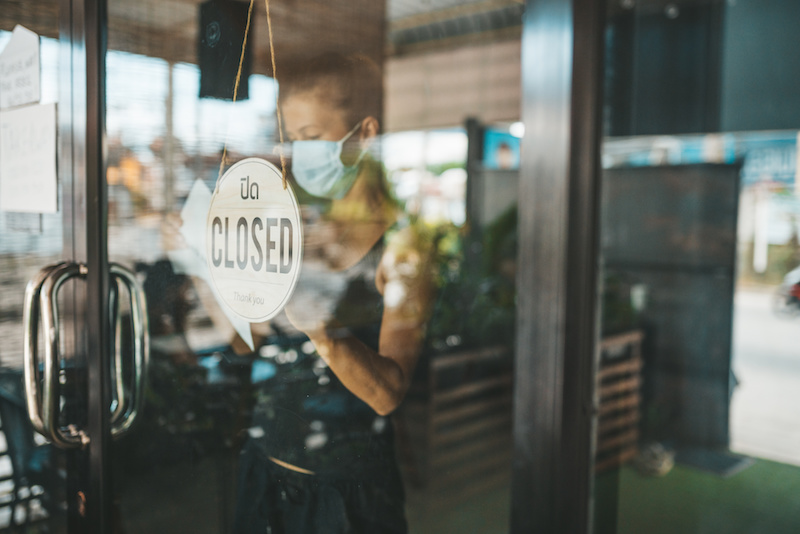The impact of COVID-19 on the casual workforce in Australia – made up of 2.5 million people – has been significant. A recent survey by Humanforce revealed that 70% of casual worker respondents reported their employer had either shut down or reduced staff and hours.
While newly legislated government policies, such as JobKeeper, have been a lifeline to some employers, not all casual workers qualify for these initiatives.
So how are employers and casual workers being impacted by COVID-19, and what things can businesses do to ensure they stay connected with their casual workers and maintain transparency and stability within their business during an incredibly challenging time?
The impact of COVID-19 on casual worker employers
Industries that employ large numbers of casual workers such as hospitality, retail, tourism, and events saw their revenues disappear overnight due to travel restrictions and social distancing measures, with many having to cut back casual worker numbers or close operations completely. However, casual workers in industries such as fast-moving consumer goods (FMCG), logistics providers and distribution centres have seen a large surge in demand, which has put a heavy strain on employers to rapidly onboard new team members to meet customer demand. Many of these businesses have had to increase their casual worker levels and have looked to employees who have been stood down by other industries.
Pleasingly, there are also examples of businesses that employ a casual workforce that have been able to pivot their operations to meet needs that have arisen due to COVID-19, such as fashion brands manufacturing personal protective equipment (PPE) for the medical field or hotels, such as the Pan Pacific Hotel in Perth offering rooms to house the homeless.
Above all, though, the impact on casual workers has been widespread. Almost three quarters of casual workers report they are suffering financially, the Humanforce survey also found.
The fact is, many casual jobs in Australia are reliant on cafes, restaurants, bars, physical retail stores, event venues and stadiums being open. If these businesses aren’t open and operating at anything near normal levels, then there is no role for many casual workers, because their jobs must be performed on site, not remotely.
The fact that casual work is heavily reliant on being able to work on-site was reflected in the survey, with 68% of casual workers saying their job could not be undertaken remotely or working from home.
Stay active and connected with your employees
Keeping your brand active and staying connected with your casual employees as well as your customers is essential to maintaining business credibility. Inactiveness is the riskiest response to the uncertainties of an economic disruption. If the situation has left you with a dwindling number of casual staff compared to before, you need to try and keep these people on your radar by staying engaged with them, as you will need these casual workers when business starts to ramp up again.
Workplace engagement was also highlighted as being a key concern to casual workers in Humanforce’s survey. Casual workers whose employment had been interrupted by COVID-19 said staying in touch with the company for when it reopened (18%) and maintaining relationships with co-workers (17%) were primary concerns.
By keeping connected with your valued casual workers you can help to communicate with your staff any necessary changes in response to COVID-19, how you might be able to help them in the interim and to reassure them that as soon as things return to normal you will need them again. This means implementing an effective and regular communications strategy to keep your casual worker network informed of any updates or changes.
Monitoring casual worker wellbeing
COVID-19 is having a big impact on people’s health – physically and mentally – and casual workers, with their irregular work patterns and greater lack of security compared to full-time staff, are especially vulnerable. It is now more important than ever before that employers are able to keep connected with all casual workers (including any workers temporarily stood-down) and arrange regular check-ins on their wellbeing and providing support where possible. For those casual workers still employed, simple ‘shift rating’ tools can help staff flag issues and personal stresses to their managers in a digital and non-intrusive way.
Keeping casual workers engaged using technology
The research also showed that employers are more likely to rely on more basic and traditional methods of communication with casual workers, compared with the more advanced digital engagement tools available to full-time employees. Survey respondents indicated that a low number of employers communicated with them via messaging apps (24%) or video conferencing (24%), instead choosing to maintain contact with employees using email (65%) or phone calls (56%) and text message (42%).
Using mobile technology for communications is the most useful tool for ensuring that your casual workers stay connected with your company during this period, so that when business begins to return to normal again you have an engaged team ready to start work. Technology can also help your business to stand down staff with transparency and compliance, as well as monitor the wellbeing of your casual workers.
Casual worker engagement is critical for Australian businesses looking to maintain a level of business continuity through the COVID-19 period, as without a motivated, connected workforce, achieving sales and fostering positive customer service experiences becomes more challenging.
Australian businesses also need casual workers to assist in their recovery from COVID-19 lockdowns. As businesses re-open following the easing of lockdown restrictions, those employers who maintained communication with workers and kept them connected with the business will find themselves best placed to benefit.

Bruce Mackenzie is the Founder and Managing Director of Humanforce– a leading global workforce management solution. Humanforce operates through seven global offices and today half a million people will clock into work on their system. Bruce’s success stems from his drive to make work exceptional.
Beyond Humanforce, Bruce is President of the North Sydney Chamber of Commerce, President of the East Sydney RAC, Vice President of Australian Business Industrial, Member of Sydney First and a State Councillor of NSWBC.

